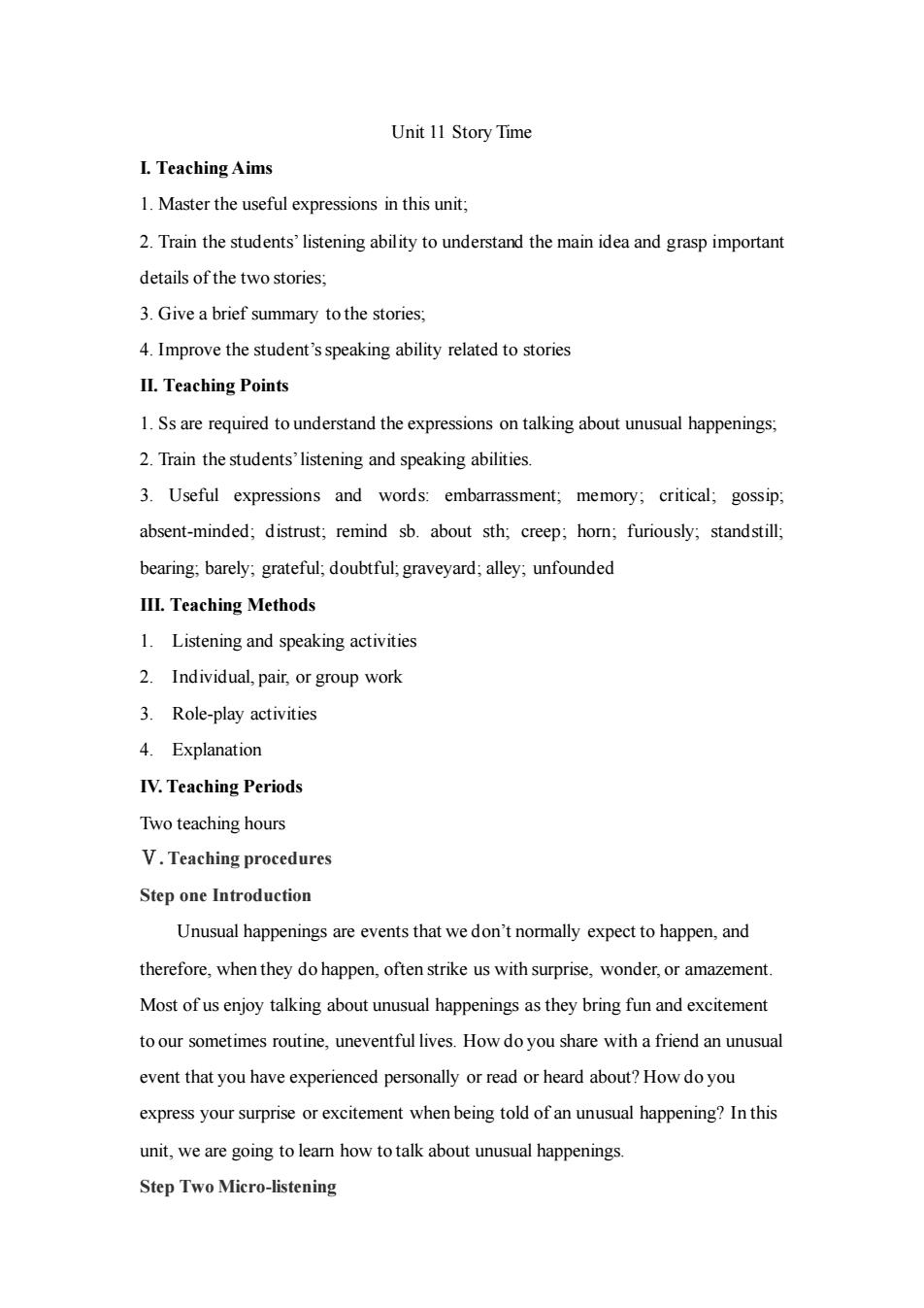正在加载图片...

Unit 11 StoryTime I.Teaching Aims 1.Master the useful expressions in this unit. 2.Train the students'listening ability to understand the main idea and grasp important details of the two stories; 3.Givea brief summary to the stories, 4.Improve the student's speaking ability related to stories II.Teaching Points 1.Ss are required to understand the expressions on talking about unusual happenings. 2.Train the students'listening and speaking abilities 3.Useful expressions and words:embarrassment,memory;critical;gossip; absent-minded;distrust;remind sb.about sth;creep:hom;furiously;standstill; bearing:barely:grateful;doubtful:graveyard;alley;unfounded III.Teaching Methods 1.Listening and speaking activities 2.Individual,pair,or group work 3.Role-play activities 4.Explanation IV.Teaching Periods Two teaching hours V.Teaching procedures Step one Introduction Unusual happenings are events that we don't normally expect to happen,and therefore,when they do happen,often strike us with surprise,wonder,or amazement Most ofus enjoy talking about unusual happenings as they bring fun and excitement to our sometimes routine,uneventful lives.How do you share with a friend an unusual event that you have experienced personally or read or heard about?How do you express your surprise or excitement when being told of an unusual happening?In this unit,we are going to learn how to talk about unusual happenings. Step Two Micro-listeningUnit 11 Story Time I. Teaching Aims 1. Master the useful expressions in this unit; 2. Train the students’ listening ability to understand the main idea and grasp important details of the two stories; 3. Give a brief summary to the stories; 4. Improve the student’s speaking ability related to stories II. Teaching Points 1. Ss are required to understand the expressions on talking about unusual happenings; 2. Train the students’ listening and speaking abilities. 3. Useful expressions and words: embarrassment; memory; critical; gossip; absent-minded; distrust; remind sb. about sth; creep; horn; furiously; standstill; bearing; barely; grateful; doubtful; graveyard; alley; unfounded III. Teaching Methods 1. Listening and speaking activities 2. Individual, pair, or group work 3. Role-play activities 4. Explanation IV. Teaching Periods Two teaching hours Ⅴ. Teaching procedures Step one Introduction Unusual happenings are events that we don’t normally expect to happen, and therefore, when they do happen, often strike us with surprise, wonder, or amazement. Most of us enjoy talking about unusual happenings as they bring fun and excitement to our sometimes routine, uneventful lives. How do you share with a friend an unusual event that you have experienced personally or read or heard about? How do you express your surprise or excitement when being told of an unusual happening? In this unit, we are going to learn how to talk about unusual happenings. Step Two Micro-listening